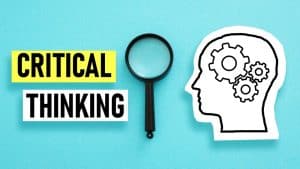Yale Curriculum
The Yale curriculum, unique and comprehensive, holds a strong reputation for its adaptability and versatility. Recognized worldwide, the education system at Yale was formed to cultivate open-minded learners, guiding students to broaden their knowledge and acquire a wide array of skills. However, to fully appreciate the intricacies and dynamics of this pedagogical approach, one must delve into its structure and understand its unique features. In this article, we’ll look at what makes the Yale curriculum special and why it’s so popular with students.
Understanding the Yale Curriculum Structure
The Yale curriculum assigns high levels of importance to both breadth and depth of education. It empowers students to build a strong foundation in numerous fields while offering the opportunity to dive deep into their chosen majors. This structure is primarily made up of two requisite sections: Distributional requirements and Major requirements.
The Role of Distributional Requirements
In the realm of Yale’s curriculum structure, distributional requirements stand as one of the most unique and instrumental foundations. These requirements, divided into several subjects, require students to step out of their academic comfort zones and explore diverse disciplines. They build a foundation that encourages students to develop a holistic understanding of the world and its varying natures.
From studying the societal implications of astronomy to exploring humanistic studies, these requirements ensure that a graduate from Yale is well-rounded, adaptive, and capable of comprehensive thinking. This approach makes Yale one of the leading institutions that value interdisciplinary learning.
For example, in the distributional requirement of natural sciences, students may have the opportunity to study biology, chemistry, physics, or geology. By engaging with these different scientific disciplines, students not only gain knowledge about the natural world but also develop critical thinking skills that can be applied to various real-world scenarios.
Similarly, in the distributional requirement of social sciences, students may explore subjects such as psychology, sociology, economics, or political science. This exposure to diverse social science disciplines equips students with a deep understanding of human behavior, societal structures, and the complexities of global issues.
The Importance of Major Requirements
While breadth is emphasized through distributional requirements, depth is explored through Major requirements. Every student at Yale is required to select a major – a specialized area of study. Majoring enables students to acquire in-depth knowledge in a particular field, preparing them for advanced academic or professional pursuits.
Yale offers a broad range of majors, each designed to engage students in rigorous, advanced study. Through these programs, students gain much more than just technical expertise; they learn how to apply critical thinking, solve intricate problems, and integrate knowledge from a broad base of academic disciplines.
For instance, a student majoring in computer science at Yale will delve into algorithms, programming languages, and software engineering. They will not only gain technical skills but also develop the ability to analyze complex problems and design innovative solutions. This comprehensive approach to major requirements ensures that students are well-prepared to excel in their chosen fields.
Moreover, Yale encourages interdisciplinary exploration even within majors. Students are often encouraged to take courses outside their major field of study to broaden their perspectives and make connections across disciplines. This interdisciplinary approach fosters creativity, innovation, and the ability to think critically from multiple angles.
In conclusion, the Yale curriculum structure strikes a balance between breadth and depth, providing students with a well-rounded education. Through distributional requirements, students explore diverse disciplines, fostering a holistic understanding of the world. Major requirements then allow students to specialize and develop expertise in their chosen fields. This comprehensive approach prepares Yale graduates to tackle complex challenges and make meaningful contributions in various professional domains.
Delving into Yale’s Curriculum and Unique Academic Features
Yale University is renowned for its exceptional academic offerings and innovative programs that set it apart from other institutions. In addition to its impressive curriculum structure, Yale continues to stand out due to its unique academic features such as the First-Year Scholars at Yale (FSY) Program and the Residential College Seminars.
The First-Year Scholars at Yale (FSY) Program
As part of Yale’s commitment to accessible and profound education, the institution launched the First-Year Scholars at Yale (FSY) Program. This program is designed to provide incoming students with a comprehensive and supportive transition from high school to college learning.
The FSY program offers rigorous academic training during the summer before a student’s first year at Yale. This training helps students gain an early grasp of Yale’s demanding academic expectations and prepares them for the intellectual challenges that lie ahead.
During the FSY program, students have the opportunity to engage with renowned faculty members and experienced mentors who guide them through various academic disciplines. Through a combination of lectures, seminars, and hands-on projects, students develop critical thinking skills, enhance their research abilities, and cultivate a deep appreciation for knowledge.
Furthermore, the FSY program provides a supportive community for incoming students, allowing them to form meaningful connections with their peers and build a strong network of support. This sense of belonging and camaraderie helps students navigate the transition to college life with confidence and ease.
The Residential College Seminars
Yale’s Residential College Seminars offer students unique course opportunities that are spearheaded by the creativity and expertise of faculty members. These seminars provide an intellectually stimulating environment where students can explore unconventional subjects and engage in thought-provoking discussions.
One of the distinctive aspects of the Residential College Seminars is the wide range of themes and topics covered. From courses on “Life and Death: Existential Classics” to explorations of “Why We Believe in Unbelievable Things,” these seminars encourage students to think critically, challenge assumptions, and broaden their perspectives.
These seminars are not limited to specific academic disciplines, allowing students to explore diverse areas of interest and connect with faculty members from various fields. This interdisciplinary approach fosters a holistic understanding of complex issues and encourages students to make connections across different disciplines.
Moreover, the Residential College Seminars provide a unique opportunity for students to engage in close-knit discussions and forge meaningful relationships with both their peers and faculty members. The small class sizes and intimate learning environments create an atmosphere conducive to intellectual growth and personal development.
By participating in the Residential College Seminars, students at Yale are exposed to a wealth of knowledge and diverse perspectives, enabling them to become well-rounded individuals who are equipped to tackle the complex challenges of the world.
The Breadth of Study Areas at Yale Curriculum
At Yale, the curriculum is not bound by conventional college subjects. Instead, the institution promotes study across three broad areas: Humanities and Arts, Social Sciences, and Biological and Physical Sciences.
Yale’s commitment to providing a well-rounded education is exemplified by the extensive range of study areas available to students. The university recognizes that a comprehensive understanding of the world requires exploration and engagement across multiple disciplines. By offering diverse courses in the Humanities and Arts, Social Sciences, and Biological and Physical Sciences, Yale equips students with the knowledge and skills necessary to navigate the complexities of the modern world.
Overview of Humanities and Arts
Yale’s course offerings in the Humanities and Arts are some of the most comprehensive and esteemed in the world. These programs are designed to propel students to think critically about societal norms, question their preconceptions, and engage intellectually with a variety of artistic disciplines.
Students pursuing studies in the Humanities and Arts at Yale have the opportunity to explore a wide range of subjects, including literature, philosophy, history, music, theater, and visual arts. The curriculum is carefully curated to expose students to diverse perspectives and cultural traditions, fostering a deep appreciation for the richness of human expression.
Through rigorous coursework, seminars, and hands-on experiences, students develop the analytical and creative skills necessary to excel in their chosen fields. They are encouraged to engage in interdisciplinary exploration, drawing connections between different artistic disciplines and applying their knowledge to real-world challenges.
Insight into Social Sciences
In the field of Social Sciences, Yale offers rigorous classes that focus on unraveling the intricacies of human behaviors, social structures, and societal issues. These areas of study encourage students to analyze the complexities and interconnections in the world around them.
Students pursuing studies in the Social Sciences at Yale have the opportunity to delve into disciplines such as psychology, sociology, anthropology, political science, economics, and international relations. The curriculum is designed to foster a deep understanding of human behavior, social dynamics, and the forces that shape our societies.
Through engaging coursework, research opportunities, and experiential learning, students develop the skills necessary to critically analyze social phenomena, propose innovative solutions to societal challenges, and contribute to the betterment of communities. The interdisciplinary nature of the Social Sciences at Yale allows students to explore the intersections between different disciplines, gaining a holistic understanding of the complex issues facing our world today.
Spotlight on Biological and Physical Sciences
The prominence of the Biological and Physical Sciences in Yale’s curriculum is a testament to the university’s commitment to the advancement of science and technology. Offering a vast assortment of classes, Yale enables students to delve into various aspects of these scientific disciplines, fostering a sense of curiosity and encouraging innovative discovery.
Students pursuing studies in the Biological and Physical Sciences at Yale have the opportunity to explore disciplines such as biology, chemistry, physics, astronomy, and environmental science. The curriculum is designed to provide students with a strong foundation in scientific principles, while also encouraging them to engage in cutting-edge research and experimentation.
Through hands-on laboratory experiences, fieldwork, and collaborative research projects, students develop the skills necessary to tackle complex scientific challenges and make meaningful contributions to their respective fields. The interdisciplinary nature of the Biological and Physical Sciences at Yale allows students to explore the intersections between different scientific disciplines, fostering a holistic understanding of the natural world and its interconnectedness.
The Role of Advising in the Yale Curriculum
In an institution as diverse and comprehensive as Yale, guidance is a crucial support system that the university offers through its First-Year Advisors and Directors of Undergraduate Studies (DUS).
Yale University is renowned for its rigorous academic programs and wide range of majors and courses. With so many options available, it can be overwhelming for students to navigate their academic journey alone. That’s where the role of advising comes in. First-Year Advisors and Directors of Undergraduate Studies (DUS) at Yale play a pivotal role in helping students make informed decisions about their academic paths.
The Function of First-Year Advisors
First-Year Advisors at Yale play a pivotal role in helping students navigate academic life. They are experienced faculty members who are assigned to incoming students to provide guidance and support during their first year. These advisors have a wealth of knowledge about the various academic departments and programs at Yale.
One of the primary functions of First-Year Advisors is to help students with course selection. They assist students in choosing classes that align with their interests, academic goals, and potential majors. By providing valuable insights into different courses and professors, First-Year Advisors help students make informed decisions about their academic schedules.
Furthermore, First-Year Advisors educate students about major requirements. They explain the prerequisites and core courses needed for each major, ensuring that students are aware of the academic path they need to follow. This guidance is particularly helpful for students who are undecided about their majors, as it allows them to explore different fields of study and make informed choices.
In addition to course selection and major requirements, First-Year Advisors provide advice on academic strategies. They help students develop effective study habits, time management skills, and organizational techniques. By offering personalized guidance, First-Year Advisors empower students to excel academically and make the most of their Yale education.
The Impact of Director of Undergraduate Studies (DUS)
The Director of Undergraduate Studies (DUS) is another key figure in a student’s academic journey at Yale. Each major has a designated DUS who serves as the primary advisor for students pursuing that particular field of study. These faculty members have extensive knowledge and expertise in their respective disciplines.
The role of the DUS is to advise students about their chosen majors. They help students explore the various opportunities and pathways within their field of study. DUSs provide guidance on selecting specialized courses, research opportunities, internships, and other academic experiences that align with students’ interests and career goals.
In addition to advising on course selection, DUSs guide students through the requirements and milestones of their major. They ensure that students are aware of the necessary courses, credits, and projects they need to complete in order to fulfill the requirements of their chosen major. DUSs also assist students in planning their academic trajectories, helping them create a coherent and fulfilling academic plan.
Moreover, DUSs serve as mentors and resources for students. They offer insights into the latest developments and trends in their respective fields, helping students stay updated and engaged. DUSs also provide valuable networking opportunities by connecting students with alumni and professionals in their field of study.
Overall, the role of advising, through First-Year Advisors and Directors of Undergraduate Studies (DUS), is essential in ensuring that students get the most out of the Yale curriculum. These advisors provide guidance, support, and mentorship, helping students navigate the vast academic landscape and make informed decisions about their education and future careers.
The Future of the Yale Curriculum
Yale is an institution that acknowledges the evolving nature of education. The curriculum here is dynamic, growing, and adapting to the changing world and student feedback.
Ongoing Curriculum Reforms
Yale University, ever dynamic, holds ongoing curriculum reforms in high importance. These reforms aim to ensure that education at Yale remains significant, innovative, and responsive to both global and local changes. They reflect the institution’s commitment to providing an education that is state-of-the-art and pertinent.
The Role of Student Feedback in Curriculum Development
Crucial to curriculum development at Yale is the voice of its learners. The University values the diverse experiences, perspectives, and opinions pupils bring to the table. It utilizes this feedback constructively to make improvements and enhancements in the curriculum, reinforcing its commitment to providing the most enriching learning experience.
Ultimately, exploring the Yale curriculum reveals a dynamic educational journey that is a unique blend of broad exploration and in-depth study. It showcases an innovative, adaptable, and inclusive approach that opens up numerous avenues for learners and ignites their intellectual curiosity.









































